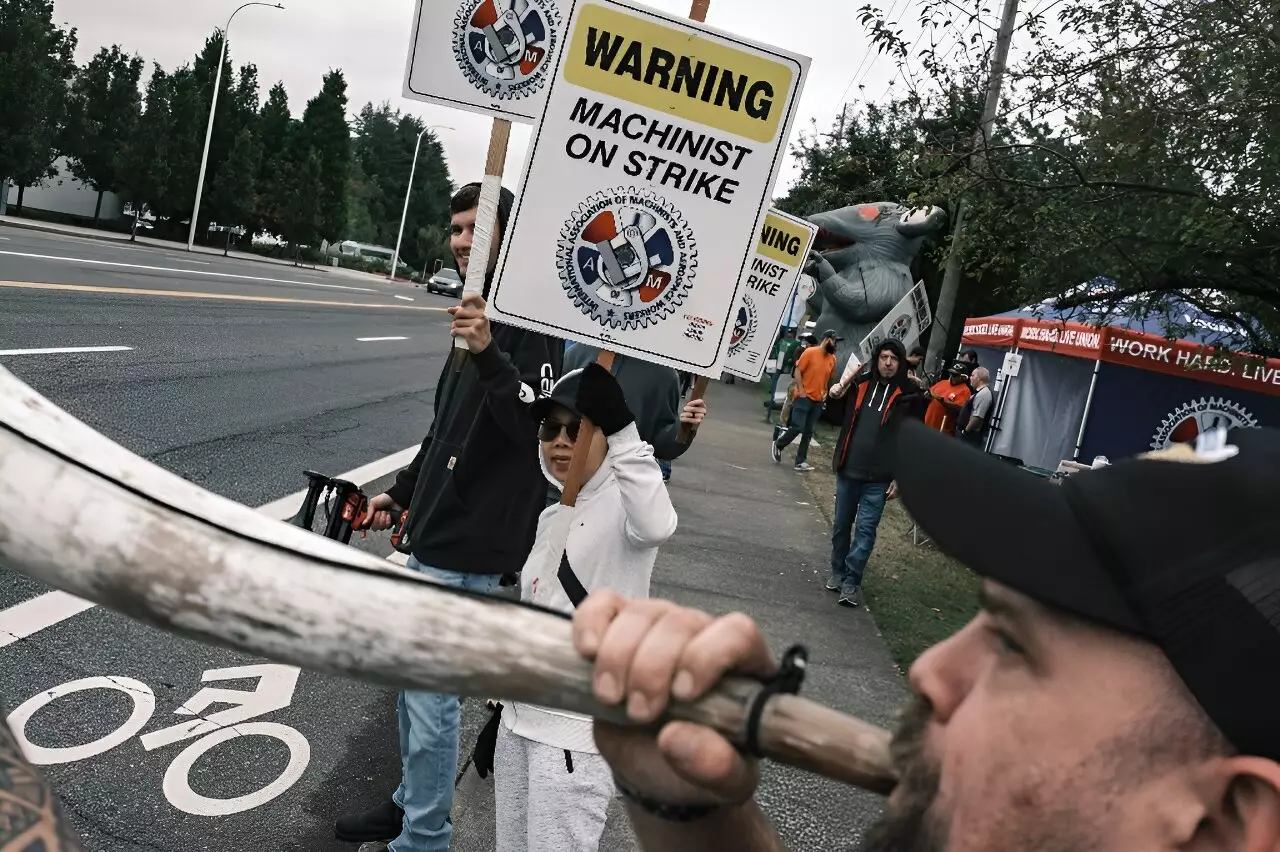The ongoing strike involving approximately 33,000 Boeing workers highlights significant labor tensions within one of America’s largest aerospace manufacturers. Initiated on September 13, this strike came after a decisive decision among employees in the Pacific Northwest to reject a contract offer. Among the most affected operations are the assembly lines for Boeing’s acclaimed 737 MAX and 777 aircraft, both critical to the company’s production output. The immediate effects of this walkout are stark: production has come to a standstill, reflecting not just a rebellion against specific contract terms, but also a broader desire for recognition and fair treatment within the workforce.
Recent developments in negotiations reveal a chasm between the striking workers, represented by the International Association of Machinists and Aerospace Workers (IAM), and Boeing management. The IAM indicated that negotiations had officially “broken off,” with no further meetings planned. This stalemate demonstrates a stark disconnect, as the union remains open to discussions, yet feels their key demands have not been sufficiently acknowledged. The lack of scheduled meetings points to a potential for heightened conflict, marking a critical juncture for both sides involved.
Boeing’s attempt to revive talks included a “best and final offer” which proposed a wage increase of 30% for striking workers, alongside the reinstatement of annual bonuses. However, the IAM dismissed these proposals as inadequate, reflecting workers’ dissatisfaction with the overall terms. Despite Boeing’s assurances of goodwill and willingness to reset relations, the union emphasizes that fundamental issues—including pension plans and substantial raises—remain contentious matters.
At the heart of this conflict lie pivotal issues surrounding pension benefits and compensation. The IAM has pointed out that one significant barrier to agreement is Boeing’s refusal to unfreeze the defined benefit pension plan, seen as crucial for many employees’ financial security. The workers are pushing for enhanced benefits that recognize the rising cost of living and their essential role in the company’s success. Yet, Boeing’s position appears steadfast, dismissing the urgency behind these adjustments.
Furthermore, the union has criticized Boeing for a lack of substantive engagement on additional demands that encompass accelerated wage progression and improved paid time off. These concerns are often the bedrock of labor disputes, as they touch on workers’ perceptions of fairness and their overall well-being within the corporate environment.
As Boeing navigates this tumultuous labor dispute, the implications stretch far beyond the immediate production delays. If both parties cannot bridge the existing gap, the strike may threaten Boeing’s operational viability and tarnish its reputation with investors and the public alike. The IAM’s openness to mediation offers a path forward, though it is contingent on Boeing’s willingness to adjust its stances on salary, benefits, and worker rights.
The striking Boeing workers are not merely fighting for better pay; they are advocating for respect, job security, and fairness in an industry renowned for its complexity and high stakes. How Boeing responds in the following weeks may determine not just the outcome of this strike, but also its long-term relationship with its workforce. The coming days will be crucial for both negotiations and the future of labor relations within the aerospace sector at large.


Leave a Reply
You must be logged in to post a comment.